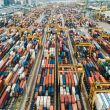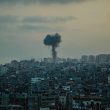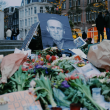Table of Contents Show
Russia’s aggression towards Ukraine has been a highly contentious issue in international politics, with the conflict dating back to 2014 when pro-Russian separatists declared independence from the Ukrainian government. The situation has resulted in the loss of thousands of lives and the displacement of hundreds of thousands of people. In order to understand the roots of this conflict, it is important to take a closer look at who Vladimir Putin is, how he came to power, and the factors that led to this conflict.
Vladimir Putin is the current president of Russia, having been in power since 2000. He was born in Leningrad, now known as Saint Petersburg, in 1952. Putin studied law at Leningrad State University, where he graduated in 1975. Following graduation, he joined the KGB and served as a foreign intelligence officer until the collapse of the Soviet Union in 1991.
After leaving the KGB, Putin entered politics in the 1990s. He held various government positions, including serving as the head of the Federal Security Service, the successor agency to the KGB. In 1999, Russian President Boris Yeltsin appointed Putin as prime minister, and when Yeltsin resigned later that year, Putin became acting president. He was subsequently elected president in 2000 and has been in power ever since, serving as president or prime minister.
Putin’s rule in Russia has been marked by a number of controversial moves. He has been accused of suppressing political opposition, undermining democratic institutions, and consolidating power in Russia. He has also been criticized for his handling of the Russian economy, which has struggled in recent years due to a decline in oil prices and economic sanctions imposed by Western countries.
In Russia, Putin's political adversaries have included figures such as Alexei Navalny, a prominent anti-corruption activist, and Mikhail Khodorkovsky, a former oligarch and political opponent of Putin. Theseindividuals have been subject to harassment, arrest, and imprisonment under Putin's regime. Navalny, for example, was arrested in January 2021 upon his return to Russia from Germany, where he was receiving treatment for poisoning with a nerve agent.
The conflict between Russia and Ukraine began in 2014 when pro-Russian separatists in eastern Ukraine declared independence from the Ukrainian government. The separatists were supported by Russia, which provided them with military and financial aid. Russia also annexed Crimea from Ukraine, claiming that the predominantly Russian-speaking region was historically part of Russia.
The annexation of Crimea was widely condemned by the international community, which viewed it as a violation of international law. In response, the United States and the European Union imposed economic sanctions on Russia, which have had a significant impact on the Russian economy.
The conflict in Ukraine has been marked by intense fighting between Ukrainian government forces and pro-Russian separatists in eastern Ukraine. The fighting has resulted in the loss of thousands of lives and the displacement of hundreds of thousands of people. The Ukrainian military has struggled to mount an effective defense against the Russian-backed separatists, due in part to years of neglect and corruption.
The annexation of Crimea by Russia has been one of the most significant factors in the ongoing conflict.Ukraine has historically been a close ally of Russia, and Crimea had been part of Russia until it was transferred to Ukraine in 1954. Russia claimed that the annexation was necessary to protect the rights of ethnic Russians in Crimea, who make up the majority of the population.
The annexation of Crimea was met with widespread condemnation from the international community, with many countries imposing economic sanctions on Russia in response. The United States and the European Union, in particular, have been at the forefront of efforts to pressure Russia to withdraw from Crimea and end its support for the separatists in eastern Ukraine.
Ukraine has since made significant efforts to modernize and strengthen its military capabilities in response to the Russian aggression. The country has received military aid from a number of countries, including the United States and Canada. However, the conflict has remained at a stalemate, with neither side able to achieve a decisive victory.
Russia’s goal in fighting Ukraine has been the subject of much debate. Some analysts argue that Russia seeks to reassert its dominance in the region and prevent Ukraine from aligning itself more closely with Western countries. Others suggest that the conflict is part of a broader effort by Putin to consolidate power and maintain his grip on Russian politics.
There is also concern that the conflict in Ukraine could escalate into a larger regional conflict, drawing in other countries such as Poland and Romania. NATO has expressed its support for Ukraine, and there is a fear that Russia could see this as a direct threat to its security.
The ongoing conflict has had a significant impact on the people of Ukraine. The fighting has resulted in widespread displacement, with many people forced to flee their homes and seek refuge elsewhere. The conflict has also had a significant economic impact, with the region suffering from a lack of investment and job opportunities.
In terms of how the war might escalate, there is a risk that Russia could increase its involvement in the conflict, potentially leading to a larger regional conflict. There is also concern that the separatists could attempt to expand their territory, leading to further fighting and bloodshed.
In terms of how the war might end, there are a few different scenarios. One possibility is that the conflict could continue indefinitely, with neither side able to achieve a decisive victory. Another possibility is that a peace agreement could be negotiated, potentially involving international mediators. However, any peace agreement would likely be difficult to achieve, given the deep-seated mistrust between the two sides.
Overall, the conflict between Russia and Ukraine remains a contentious and complex issue. While there have been some efforts to resolve the conflict through diplomatic means, the situation remains unresolved, with no clear end in sight.
TRENDING ARTICLES

Global Affairs, News, Trending
Russia’s Navalny

News, Society & Culture, Trending
Religions should be taxed

Leaders, Profiles, Trending
Kamala Harris, an American politician

News, Society & Culture, Trending
Should schools have armed guards?

Global Affairs, News, Trending
Russia’s objective

Leaders, Profiles, Trending




